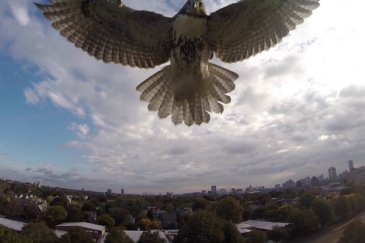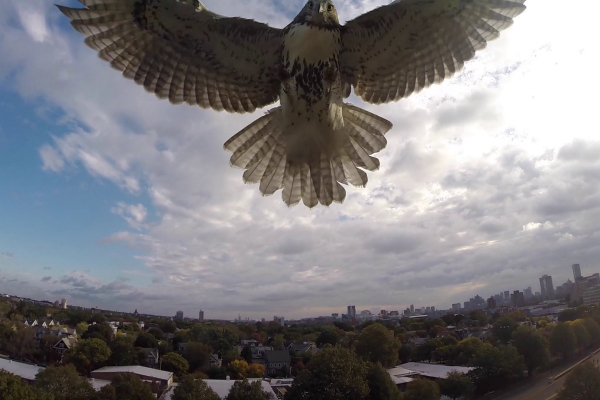This awesome, first-person footage shows you how it looks if a red-tailed hawk wants you out of its air space - and it's pretty damn terrifying.

It seems it's been a week for animals getting pissed off with technology in their neighbourhood - like this squid, which attacked a Greenpeace submarine on Monday.
Now footage from an onbard camera has emerged of a beautiful red-tailed hawk attacking a qaudcopter in Cambridge, Massachusetts, in the US. And it shows just how powerful these raptors can be - pretty soon after the hawk hurtles towards the drone, talons bared, the drone drops from the sky.
But don't worry, both parties were unharmed, as Christopher Schmidt, the owner of the drone, writes on his YouTube channel.
"As far as I could tell, the juvenile red-tailed hawk came out unscathed, and having defeated his prey, was happy to retreat. (As soon as he flew at me, I throttled down the props to try to minimise any harm to the bird.)," says Schmidt. "The quadcopter came out unscathed as well."
But although the footage is entertaining, it highlights a potential problem of drone delivery start-ups, who are planning on getting packages and even pizza to people almost instantly via drone - birds of prey aren't keen to share their airspace.
While there have been hundreds of thousands of instances of bird-aircraft collision since the 1990s, these are accidents, where a bird has accidentally flown into a wing or a propeller.
But as avian expert Nicholas Lund writes for Slate:
"The difference for Amazon's drones is that the birds will be chasing them. Unseen to us, the skies are checkered with fiercely defended bird territories. Open-country raptors - hawks, eagles, kites, harriers, etc. - don't take kindly to interlopers on their hunting grounds, and frequently chase, dive-bomb, and take talons to intruders. The confrontations can be even more violent during nesting season when vulnerable chicks are potential prey."
And as this video makes clear (and as anyone who's been swooped during bird breeding season will already know), that territorial birds ain't nothing to be messed with.
Sources: Christopher Schmidt, io9, Slate

